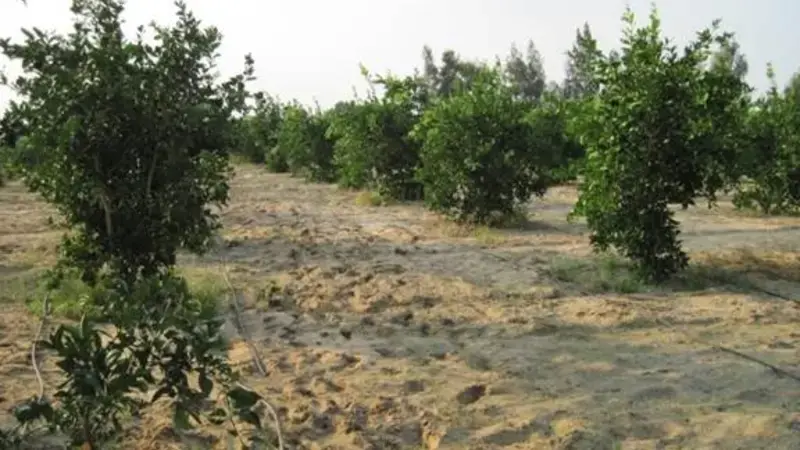Women, irrigation, and social norms in Egypt

ICARDA research in Egypt has revealed that although women play a far more active role in irrigation than previously thought, their contributions continue to be undervalued, limiting their access to new technologies and restricting their participation in water governance. The study identifies several factors - including land ownership, educational attainment, and institutional support – that may enhance women’s visibility and increase the benefits they receive from irrigation.
The study surveyed some 200 men and 202 women, and conducted a further 150 interviews, equally divided between men and women. While the survey' findings offered a broad overview of the role women play in irrigation, and the adoption of irrigation technologies and techniques, the interviews enabled researchers to better understand their contributions, as well as the challenges and opportunities they face in more nuance, depth, and detail.
Fieldwork was conducted in 13 villages in Kafr Sheikh Governorate and 13 villages in Nourbariya Governorate, enabling researchers to explore a wide range of experiences. Whereas Kafr Sheikh Governorate is located in the ‘Old Lands,’ more traditional areas which have been cultivated for centuries; Noubariya is located in the ‘New Lands,’ desert areas that were reclaimed and cultivated after the construction of the Aswan Dam. The two areas differ in terms of gender norms, irrigation technologies, and land ownership dynamics.
‘Old Lands’ versus ‘New Lands’
Analysis revealed that women participated in irrigation activities in 78 percent of the households surveyed, and while their contributions were undervalued in both places, and they often faced gender discrimination regardless of location, their experiences also varied considerably. Women living in the ‘Old Lands,’ for example, tended to face greater restrictions in their day-to-day life, limiting the roles they performed or the jobs they were hired to do. Those living in the ‘New Lands’ were subjected to fewer socially-conservative norms, and because they settled as nuclear families, rather than multi-generational extended families with large numbers of male relatives, their labor was also in demand.
In the ‘Old Lands’ irrigation officials suggested that women who participated in irrigation belonged to a lower social class, and were either illiterate, uneducated, or forced to participate in irrigation activities because they had no male relatives – sentiments that devalued their involvement, limited their participation in water governance, and restricted access to new technologies.
Their counterparts in the ‘New Lands,’ however, were perceived more favorably due to their landowning status and educational profile – the area’s resettlement program had specifically targeted female high school, technical school, and university graduates, providing them with homes and land. They also received rigorous training, which legitimized their involvement in irrigation. In the words of one male respondent in Nourbariya: “A women graduate here is like any man. She has a degree just like the men. She got land and so did he.”
Participating in WUAs
Despite women’s significant involvement in irrigation, their participation in water governance was limited. Nonetheless, involvement in public bodies such as Water User Associations (WUAs) was more common in the ‘New Lands.’ A key factor was institutional support. World Food Program (WFP) assistance, in particular, had been contingent on women’s participation in WUAs – and WFP also pushed for women to be granted land as part of Nourbariya’s settlement program. Furthermore, both men and women received leadership and irrigation training from the International Fund for Agricultural Development (IFAD) in the 1990s, which gave women the confidence to participate in WUAs and a familiarity with how these groups operate.
In the ‘Old Lands,’ however, the women serving on WUAs were assigned marginal positions, and even when they had the support of development organizations, oversaw domestic water allocations only. These positions did not include voting rights, limiting their ability to influence decision-making, and the overriding perception of women being weak, illiterate, and uneducated confined them to more subordinate positions within public bodies which tended to be dominated by wealthier and politically-connected men.
Encouraging women’s participation
Women’s involvement in irrigation management and practices, then, can be strengthened by land ownership and higher levels of educational attainment. While women in Noubariya continued to face inequities and marginalization, their comparatively advantaged socio-economic position allowed them to participate more in irrigation activities and exercise greater influence. The research also revealed the importance of institutional support – and this was underlined by the fact that when institutional support was subsequently withdrawn in the ‘New Lands’ there was a corresponding decrease in the involvement of both women and men in WUAs.
However, land ownership, educational attainment, and institutional support will not be sufficient on their own. Participation in irrigation, and the benefits that accrue from this participation, are also influenced by prevailing social, economic, and political norms in rural communities – demonstrated by the fact that women who successfully participated in WUAs still had to endure reputational damage. To overcome these constraints the study highlighted the importance of working at multiple levels to address gender inequalities. In particular, introducing policy reforms – such as quotas on WUAs and other governance bodies; facilitating organizational support to substantiate the role of WUAs; and developing awareness raising campaigns to promote gender equality and challenge societal norms.
This blog is based on an article recently published in ‘Water Policy,’ entitled “Women, irrigation, and social norms in Egypt: ‘The more things change, the more they stay the same?’” The article is also being turned into a working paper and a policy brief for wider dissemination as part of IDRC’s GrOW Research Series.
For more information, please contact Dina Najjar (PhD), Gender Scientist with ICARDA at [email protected]
